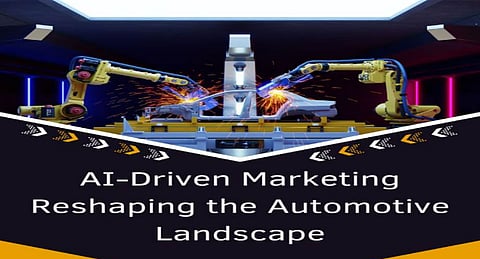

In this fast changing world of technology today, artificial intelligence is thriving to engineer revolution in automotive marketing. The AI-based marketing models have changed the way organizations understand customer behavior, personalize their campaigns, and optimize their sales strategies. Drawing upon his field experience, Ravi Sankar Sambangi explores the heart of the artificial intelligence innovations for automobile marketing. Marketing efficiency and customer engagement are fortified by new model created with great frameworks for data analysis, predictive modeling, and automation.
Propensity modeling leverages machine learning algorithms to predict a customer’s likelihood of purchasing a vehicle. Unlike traditional demographic segmentation, this approach analyzes behavioral patterns from digital footprints such as website visits, social media interactions, and past purchases. Automotive marketers have reported a significant increase in sales conversions by focusing efforts on high-potential leads, optimizing resource allocation, and delivering relevant offers.
In-market models, in automotive terms, help businesses to detect those consumers who are seeking to buy a vehicle later. Artificial intelligence predicts the possibility of such consumers within a stipulated timeframe based on the real-time data crawling through various online platforms. It promises ending the longer sales cycle and increased closing rates, as now dealerships can talk to consumers nearing a purchase decision.
Near-market modeling is designed to identify and nurture consumers who may not be immediate buyers but are likely to make a purchase in the near future. By analyzing lifecycle patterns, maintenance records, and external market indicators, AI-powered near-market models allow automotive businesses to build long-term relationships with potential customers. This proactive engagement strategy improves customer retention and brand loyalty.
Having identified deeply rooted preferences and interests, affinity modeling leads to higher levels of customer personalization. AI algorithms analyze data from various touchpoints to determine which vehicle features, services, or accessories are likely to be favored by a customer. This has completely changed cross-selling and upselling strategies whereby the dealership's revenue relates significantly to the personalized add-ons and services suggested.
AI has enabled highly personalized marketing campaigns that engage customers at every stage of their journey. Predictive analytics help automotive companies deliver tailored promotions, reducing customer churn and improving conversion rates. Advanced AI-driven customer segmentation ensures that marketing messages resonate with the right audience, maximizing the impact of each campaign.
AI lead nurturing turns the times in customer relationship management. By processing interaction data obtained from operating systems and other sources, AI identifies high-intent leads and nurtures them with personalized follow-ups. Organizations implementing AI lead nurturing report improved sales productivity and reduced customer acquisition costs. AI adopts a key role in propelling profitability in the automotive sector.
Dynamic pricing powered by AI allows redefining the price management strategies of the automotive industry. AI optimizes vehicle prices according to market trends, competitors' pricing, and changes in demand patterns in real-time. Moreover, AI-enabled promotional strategies eliminate misallocated marketing budgets by effectively targeting discounts and special offers for better revenue margins.
The conjoint evolution of AI with AR and VR services will redefine automotive marketing by means of virtual showrooms and AI visualization tools. Customers enjoy an immersive experience in exploring features and customizations of the vehicle online. Equally, the technological impacts accompanying AI in various real-time customer interactions, along with marketing electric vehicles and predictive maintenance, will be enhanced even further, creating a plethora of avenues for interaction with customers.
The use of AI in automotive marketing offers opportunities for personalization, precision, and predictability. However, it has also prompted questions about data privacy, model transparency, and ethics. AI systems analyze vast quantities of consumer data, so the protection of user information must involve ensuring compliance with regulations like GDPR and the CCPA. But, AI transparency is equally needed, for hidden algorithms can cause biased targeting and lead to distrust among the consumer base. Ethical issues involving data and advertising practices have to be duly considered to avoid unethical applications that would be detrimental to society at large. Automotive marketers should practice responsible AI by giving priority to explainability, bias prevention, and secure data management practices. This balance between taking responsibility for innovation will enable brands to gain long-term trust while harnessing AI's potential for improving customer engagement and sales.
To conclude, Ravi Sankar Sambangi's words capture how powerful AI is in changing the world of automotive marketing. Propensity, in-market, near-market, affinity modeling, and many advanced modeling techniques are being utilized to optimize consumer engagement, sales performance, and marketing efficiency, providing automotive firms with a competitive edge. Thus, as the pace of AI adoption increases, so will AI's influence in revolutionizing the marketing and selling of vehicles amidst the digital age.
